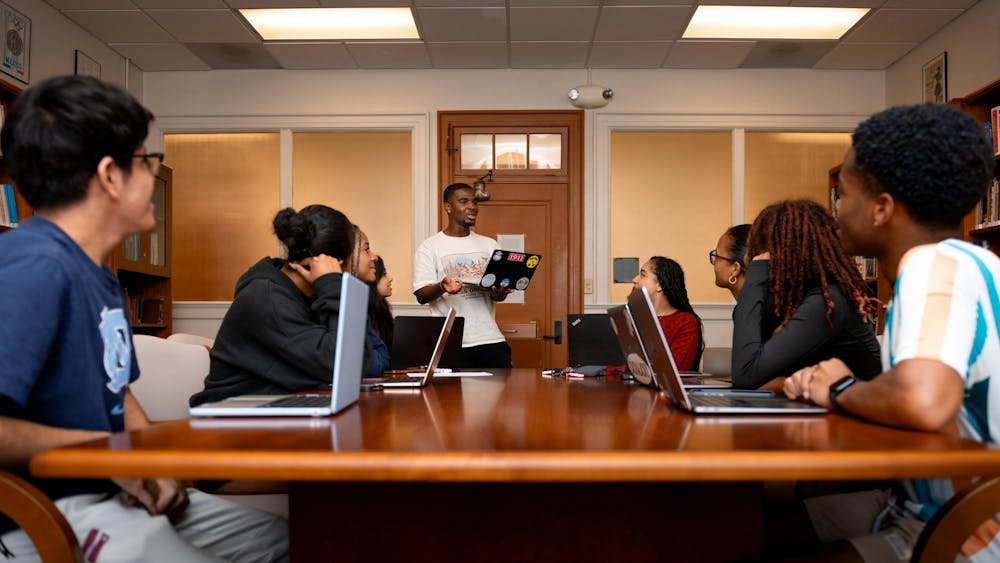After the controversial removal of Diversity and Inclusion service requirements at UNC System schools, the Undergraduate Student Government is continuing efforts to preserve the intentions of DEI programming in their own actions.
“We as an executive branch always want what's best for students, and DEI was what was best for students,” Eden Aulis-Campos, the Chief of Staff to Vice President Christopher Williams, said.
After the policy repeal, some students turned to Student Government for answers.
The Student Government Department of Diversity, Equity and Inclusion, a part of the Undergraduate Executive Branch, wants to ensure that students aren’t losing resources or protections they once had. Department co-director Alexandra Versace said the branch is working to find ways to replace what was lost.
“The students are the ones that are affected by this, and we want to make sure that their mental health—that's one of the biggest things—their mental health and their studies [aren’t personally affected],” Versace said.
For now, the change isn’t slated to affect student organizations, which is why the department continues to exist. Still, Versace said, "you never know what's going to happen."
Section 300.8.5[R] of the UNC Policy Manual states that student-led organizations can use University facilities and receive funding while still participating in any “speech or expressive activity" that would otherwise violate institutional neutrality. The revised policy also states that student activity funding may only be granted to student led organizations for the use of University facilities and resources.
“In this role, my job is to help facilitate DEI on campus, whether that be hosting different events, educating others, meeting with students [or] meeting with faculty and staff,” Versace said.
In an interview with The Daily Tar Heel surrounding affirmative action, UNC Student Body President Jaleah Taylor said that she was in the process of trying to work with the UNC Office of Undergraduate Admissions to work toward consistency in minority numbers and status post-affirmative action.




